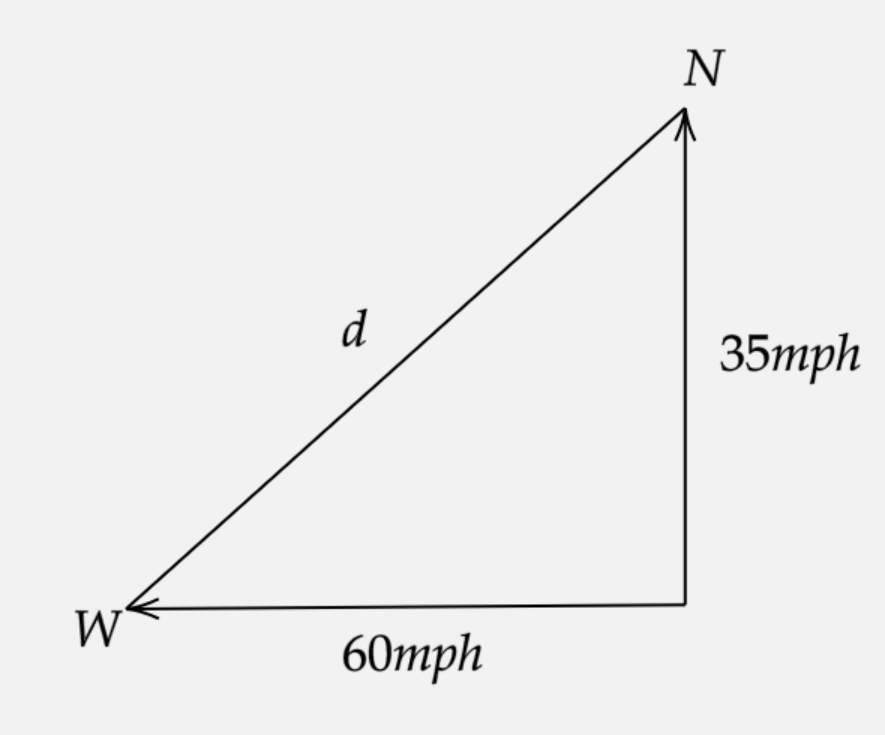Question
Question: Two automobiles start from point A at the same time. One travels toward the west at the speed of \( ...
Two automobiles start from point A at the same time. One travels toward the west at the speed of 60 miles per hour while the other travels towards the North at 35mph . Their distance apart after 3 hours later is increasing at the rate (in mph)
(A)5193
(B)193
(C)1935
(D)Noneofthese
Solution
First as per the problem statement we need to draw a rough diagram so as to write the equation of the total distance travelled. Then on differentiating the total distance we can find the rate of increase in speed after 3 hours.
Complete answer:
As per the given problem we know that there are two automobiles starting from point A at the same time. One travels toward the west at the speed of 60 miles per hour while the other travels towards the North at 35mph .
We need to find the distance apart after 3 hours later is increasing at the rate (in mph).

We know the speed of the two automobiles,
Distance is equal to speed multiplied with time.
Hence from the figure we can write,
d2=(35t)2+(60t)2……(1)
At t=3hour we will get,
d2=(35×3)2+(60×3)2
On further solving we will get,
d2=(105)2+(180)2
⇒d2=43425
Hence the distance will be,
d=15193
Now on differentiating the equation (1) wrt t we will get,
dtdd2=dtd(35t)2+dtd(60t)2
On further solving we will get,
dtdd2=1225×dtdt2+3600×dtdt2
⇒2d×dtdd=1225×2t+3600×2t
Now cancelling the common terms we will get,
d×dtdd=1225×t+3600×t
At t=3 we will get,
ddtdd=1225×3+3600×3
Taking d to other side we will get,
dtdd=d14475
Putting the value of d=15193 we will get,
dtdd=1519314475
⇒dtdd=193965
Multiplying and dividing 193 in RHS we will get,
dtdd=193965×193193=193965193
On cancelling further we will get,
dtdd=5193mph
Therefore the correct option is (A) .
Note:
Remember that the rate of change of one quantity withbretapet to time can be calculated by differentiating the given function with respect to time. And we can see the rate of change is infinitesimal changes in the given quantity when there is an infinitesimal change in time. And here in this problem the distance depends on the time.
